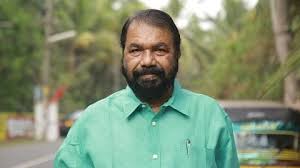Kerala minister condemns decision to remove Arabic & Mahal from Lakshadweep’s curriculum – ‘deeply disturbing’

The recent decision by the Lakshadweep administration to remove Arabic and Mahal languages from the school curriculum has sparked significant controversy. Kerala’s political and cultural leaders, especially, have strongly opposed this move. The policy replaces these languages with Hindi under the National Education Policy (NEP) 2020 framework. Kerala’s General Education Minister, V Sivankutty, described the decision as “deeply disturbing” and culturally insensitive. This has started a heated debate about linguistic rights, cultural identity, and regional autonomy in education.
Background of the Controversy
Lakshadweep is a union territory in the Arabian Sea with a predominantly Muslim population. The region has unique cultural and linguistic traditions. Mahal is a variant of Dhivehi spoken only in Minicoy, one of Lakshadweep’s islands. It holds great cultural importance. Arabic has been an integral part of the region’s education and religious life for generations. It is both a language of worship and a symbol of identity.
In mid-May 2025, the Education Department issued an order removing these languages from schools. The order replaces them with Hindi as the third language, in line with the National Curriculum Framework (NCF) under the NEP 2020. This affects about 3,500 students who studied Arabic and Mahal.
Kerala Minister V Sivankutty’s Strong Opposition
Kerala’s Education Minister V Sivankutty strongly opposed the decision. He called it a “deeply disturbing” act that threatens the linguistic and cultural heritage of Lakshadweep’s people. In a statement, Sivankutty said language is more than communication. It carries identity, history, and collective memory.
He warned that imposing Hindi ignores the unique cultural needs of the islands. He called the move a “linguistic injustice.” Sivankutty urged educators, civil society, and democratic forces to unite and resist this policy change. He emphasized preserving India’s cultural diversity and protecting minority languages.
Kerala’s government has already raised concerns about the NEP’s three-language formula. Critics say it promotes Hindi at the expense of regional languages. Sivankutty’s reaction highlights fears about the central government overriding local priorities.
Cultural and Educational Impact on Lakshadweep
This change is more than administrative. It strikes at the heart of Lakshadweep’s cultural identity. Arabic holds religious importance for the Muslim community. It is deeply connected to Quranic studies and daily worship. Mahal is a unique linguistic heritage of Minicoy. It connects the islanders to their history and traditions.
Many residents of Minicoy oppose the change strongly. They see it as an erosion of their cultural rights. Protests have erupted demanding the return of Arabic and Mahal in schools. Community leaders warn this could lead to cultural alienation. They fear the gradual loss of these minority languages.
Students who have grown up learning Arabic and Mahal now face challenges. Suddenly introducing Hindi, which many do not know, will disrupt their education. This threatens both academic success and emotional ties to their studies.
Political Voices and Broader Concerns
The issue has drawn attention beyond Kerala. Lakshadweep’s lone Member of Parliament, Muhammed Hamdullah Sayeed, formally objected to the language removal. In a letter to Union Territory Administrator Praful Khoda Patel, Sayeed stressed the languages’ cultural importance.
He criticized the timing and process. The order came during school vacations without consulting parents, teachers, or local leaders. This caused confusion and disrupted the academic calendar. Sayeed’s objections highlight a larger problem with imposing national policies on culturally distinct regions.
Critics argue the NEP’s one-size-fits-all approach ignores India’s linguistic diversity. They say local languages are vital for preserving cultural heritage.
National Education Policy and Its Challenges
The NEP 2020 aims to promote multilingualism through a three-language formula. It encourages learning the mother tongue, Hindi, and English. However, in Lakshadweep, the policy has created tension. For many islanders, Arabic and Mahal are not just languages. They are living traditions that shape identity and history.
Supporters of the NEP say Hindi and English open more opportunities and foster unity. Yet, opponents see the policy as forced homogenization. It sidelines minority languages and cultures.
The removal of Arabic and Mahal highlights this conflict. For Lakshadweep’s people, this decision feels like an attack on their cultural roots. The long-term impact could be the loss of unique languages and heritage.
Social and Cultural Ramifications
This controversy has revived debates about the treatment of linguistic minorities in education. Language is closely tied to identity and belonging. Ignoring local languages risks alienating communities.
Activists warn such decisions deepen divisions and breed resentment. They call for inclusive policy-making that respects local cultures while pursuing national goals.
The protests in Lakshadweep echo other movements across India. Many minority communities demand protection of their languages. The situation demands a nuanced approach that values India’s pluralism rather than imposing uniformity.
Conclusion: A Call for Dialogue and Sensitivity
The removal of Arabic and Mahal from Lakshadweep schools has become a flashpoint in cultural and educational debates. Kerala’s Education Minister V Sivankutty’s condemnation reflects widespread concern about losing linguistic heritage.
As protests continue and political voices demand change, one lesson stands out. Education reforms must respect local cultures and languages. India’s diversity is its strength. Preserving this diversity in education fosters inclusion and identity.
Constructive dialogue between local communities, educators, and policymakers is essential. Only then can national education goals balance with cultural rights. The future of Lakshadweep’s unique languages depends on this respectful and inclusive approach.






